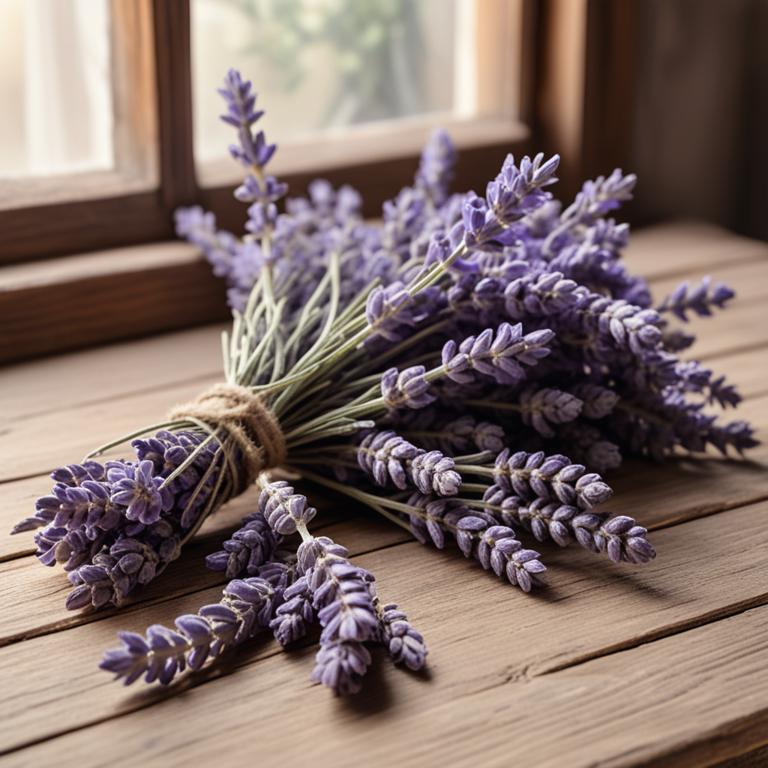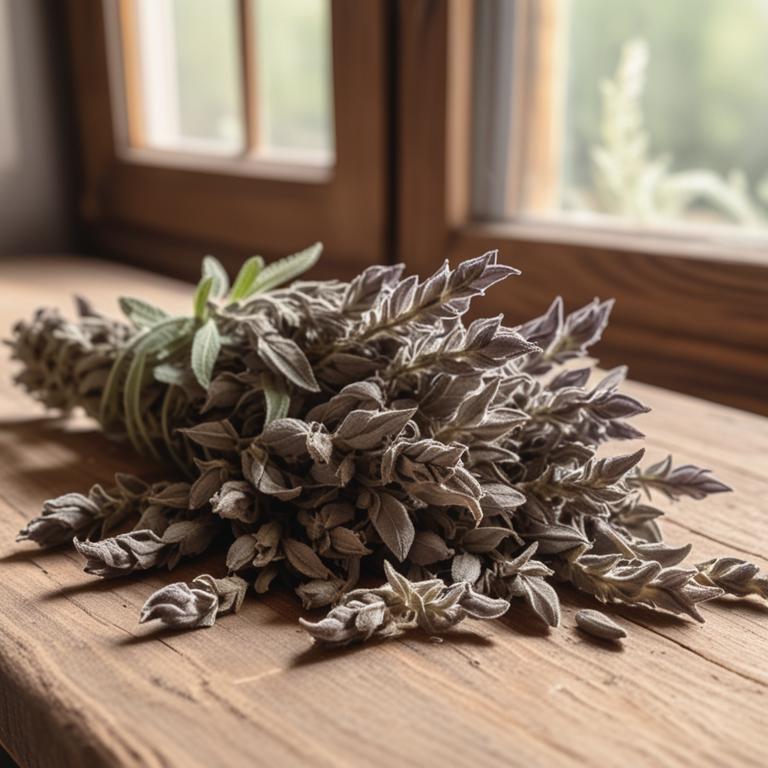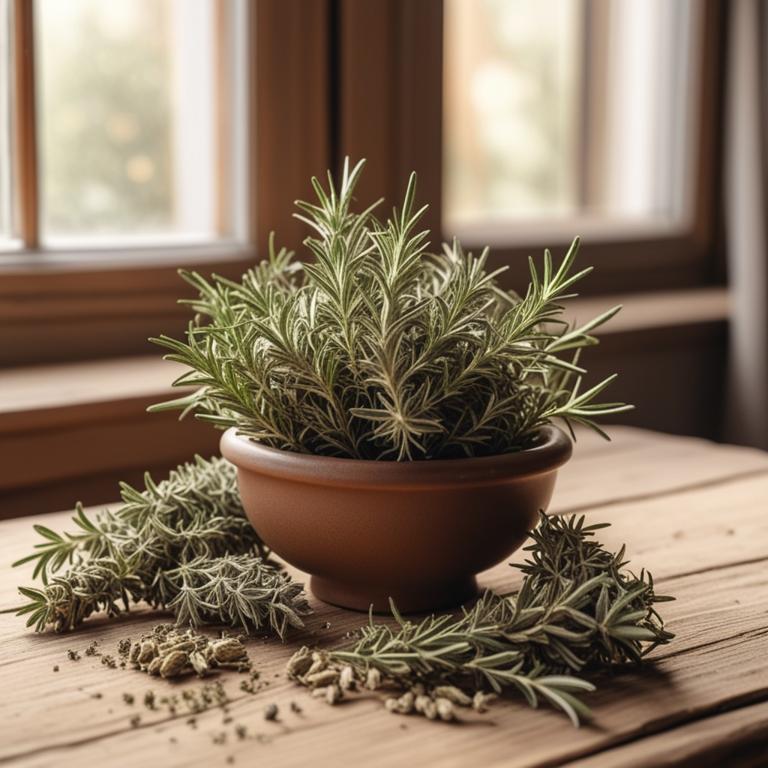Updated: Dec 1, 2024
The Ultimate Guide to Itchy Skin Causes, Medicinal Herbs, and Treatments
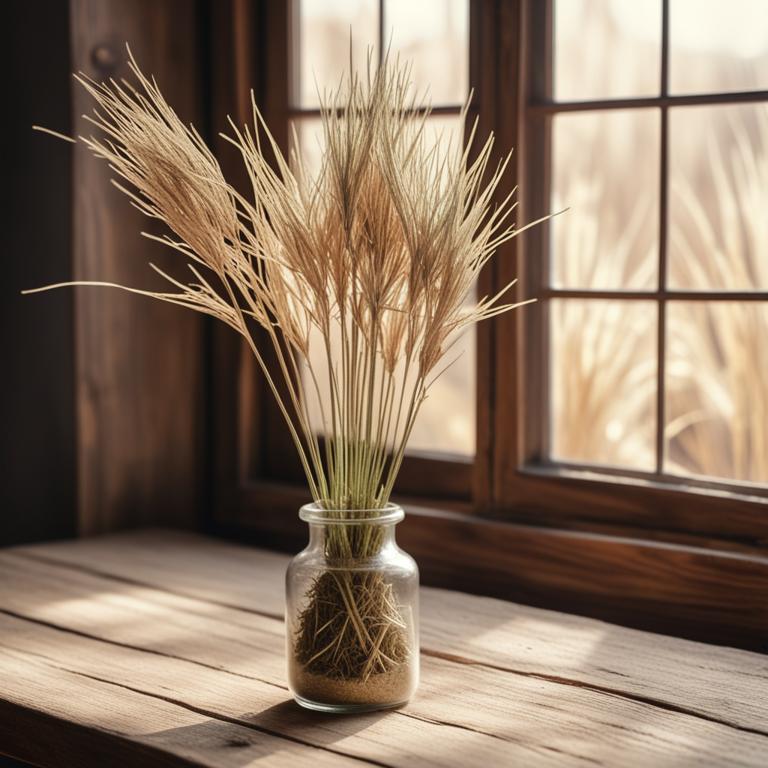
Itchy skin can be a real nuisance, disrupting your daily life and causing discomfort.
It's characterized by a constant urge to scratch, which can lead to skin irritation, infection, and even emotional distress. So, what causes itchy skin?. Well, it can be due to allergies, dry skin, eczema, or even skin conditions like psoriasis. Sometimes, it can also be a sign of an underlying health issue. Luckily, there are some effective herbal remedies that can help soothe itchy skin.
Herbs like calendula, aloe vera, and chamomile have anti-inflammatory and antiseptic properties that can calm irritated skin. They can also help to reduce itching and promote healing. To use these herbs, you can try making a tea by steeping dried calendula flowers in hot water, or applying aloe vera gel directly to the affected area. Another option is to take a bath with chamomile flowers, which can help to relax and calm your skin. Some people also find that taking supplements like oatmeal and slippery elm can help to soothe itchy skin. These herbs can help to create a protective barrier on the skin's surface, reducing irritation and itching.
You can also try using herbal creams or ointments that contain these herbs, which can be applied directly to the affected area.
Table of Contents
What are the root causes of itchy skin?
The main causes of itchy skin are a group of conditions that can cause discomfort and frustration.
Eczema, for example, is a condition where the skin becomes dry, inflamed, and itchy due to an abnormal immune response. This can be triggered by factors such as genetics, environmental triggers like pollen or dust, and even stress. Allergies are another common cause of itchy skin, where the body reacts to a substance like pollen, dust, or certain foods, leading to inflammation and itchiness. This can manifest as hives, rashes, or other skin reactions. Psoriasis is a chronic condition where skin cells grow too quickly, leading to itchy, scaly patches on the skin.
This is often triggered by genetics, but can also be caused by factors such as stress, smoking, and certain medications. Dermatitis is a group of skin conditions that can cause itchy, inflamed skin. Atopic dermatitis, also known as eczema, is a type of dermatitis that is often caused by allergies and a weakened skin barrier. Contact dermatitis, on the other hand, is caused by direct contact with an irritant or allergen, leading to itchy skin. Finally, scabies is a condition caused by a tiny mite that burrows into the skin, causing intense itching and discomfort.
This is highly contagious and can be spread through direct contact with an infected person.
What are the advantages of using herbs for treating itchy skin?
Using herbs for itchy skin can be really helpful.
One of the main benefits is that they can provide quick relief from itching and scratching. These herbs often have anti-inflammatory properties, which can reduce redness and swelling.
Some herbs can also soothe and calm the skin, making it feel cooler and more comfortable. Additionally, many herbs have natural antihistamine properties, which can help to reduce the allergic reactions that can cause itchy skin. This means that herbs can be a great alternative to over-the-counter creams and medications, which can have harsh chemicals and side effects.
By using herbs, you can also avoid exposing your skin to these chemicals and reduce the risk of irritation.
What are the key medicinal herbs for soothing itchy skin?
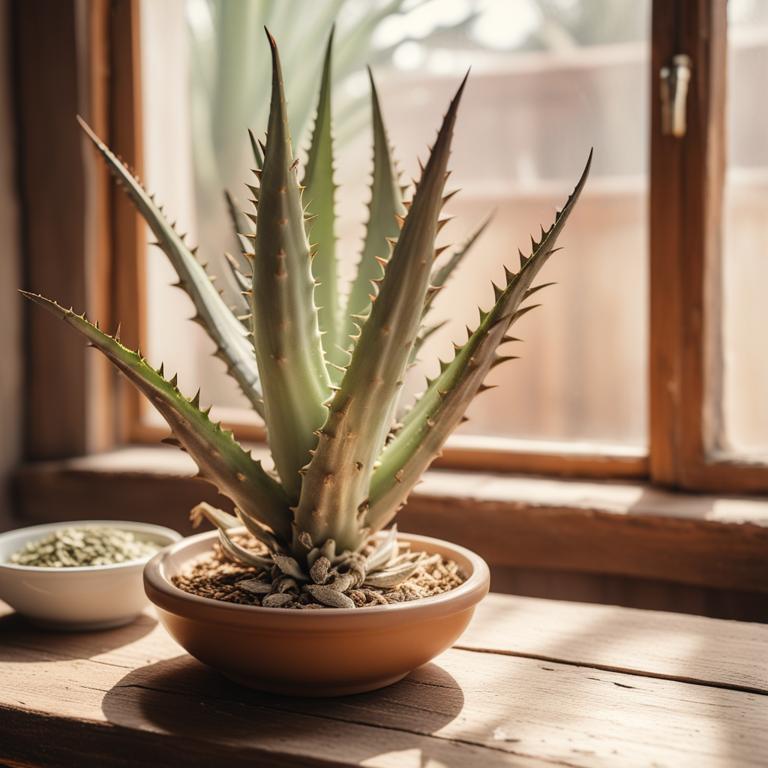
Herbs have been used for centuries to soothe itchy skin, and they're still effective today.
Aloe barbadensis, also known as aloe vera, is a popular choice because it contains cooling compounds that calm irritated skin. Its gel-like texture makes it easy to apply directly to itchy areas, providing quick relief. Calendula officinalis, or marigold, is another herb that's great for itchy skin. It has anti-inflammatory properties that reduce swelling and redness, making it a great natural remedy for skin irritations. When applied topically, calendula can speed up the healing process and promote healthy skin. Urtica dioica, or nettle leaf, is a herb that's often used to treat itchy skin caused by allergies or skin conditions like eczema. Its anti-inflammatory properties can help reduce itching and inflammation, while its antihistamine properties can alleviate allergic reactions.
Nettle leaf can be made into a tea or applied topically as a compress. Plantago major, or plantain, is a common weed that's been used for centuries to treat itchy skin. Its leaves contain anti-inflammatory compounds that can reduce itching and swelling, making it a great natural remedy for skin irritations. Plantain can be made into a salve or applied topically as a compress. Chamomilla recutita, or German chamomile, is a calming herb that can soothe itchy skin. Its anti-inflammatory properties can reduce redness and swelling, while its calming effects can promote relaxation and reduce stress, which can exacerbate itchy skin. German chamomile can be made into a tea or applied topically as a compress. These herbs can be used individually or in combination to treat itchy skin.
They're a great alternative to harsh chemicals and can be used as a natural remedy to soothe itchy skin and promote healthy skin.
What herbal preparations are most commonly used to cure itchy skin?
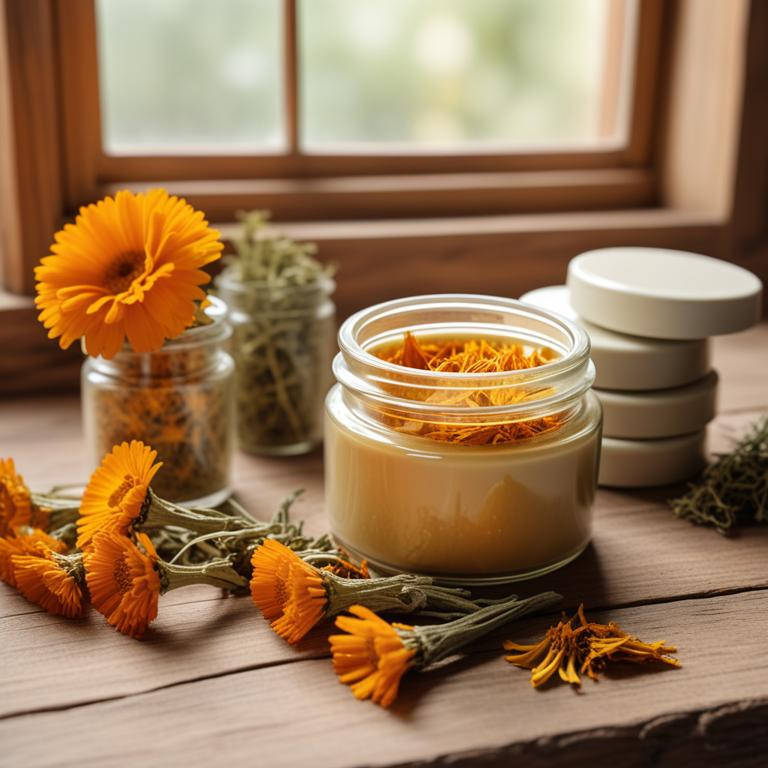
Herbal preparations can be super helpful for itchy skin.
A cream made from herbs like calendula or aloe vera can provide instant relief by soothing and calming the skin. These creams are easy to apply and get absorbed quickly, which makes them great for day-to-day use. An ointment, on the other hand, is often used for more severe itchy skin conditions like eczema or psoriasis. It can be made with herbs like tea tree oil or chamomile, which have anti-inflammatory properties that help reduce redness and swelling. A salve is similar to an ointment but often has a thicker, more protective layer that helps lock in moisture and keep the skin hydrated.
This makes it perfect for dry, itchy skin areas like elbows or knees. If you're dealing with a more internal issue, like an allergic reaction or digestive problems that cause itchy skin, a decoction might be the way to go. A decoction is a liquid herbal preparation that's made by steeping herbs in hot water, which can help draw out their healing properties. An infusion, which is similar to a tea, can also be beneficial for itchy skin. It's often used to treat skin conditions from the inside out, like acne or rosacea, by helping to balance hormones and reduce inflammation.
Herbal preparations like these can be a natural and effective way to soothe itchy skin, and they often come with fewer side effects than over-the-counter or prescription medications.
Additional Resources:
Should you avoid certain herbs if you have itchy skin?
If you have itchy skin, there are some herbs you should avoid.
Rhus toxicodendron, also known as poison ivy, is a plant that can cause severe skin irritation and itching. If you take it as a homeopathic remedy, it might seem like a good idea, but it can actually make your skin condition worse. Berberis vulgaris, or barberry, is another plant that can cause skin irritation, especially if you have sensitive skin. It contains a chemical called berberine that can cause your skin to become red and itchy. Sanguinaria canadensis, or bloodroot, is a plant that's sometimes used in herbal remedies, but it's not safe for people with itchy skin.
The active ingredient in bloodroot can cause your skin to become even more irritated and itchy. Glycyrrhiza glabra, or licorice root, is often used to soothe skin irritations, but it can actually make your skin worse if you have itchy skin. This is because licorice root can cause your skin to become even more sensitive and reactive. Solanum dulcamara, or bittersweet nightshade, is a plant that's sometimes used in herbal remedies, but it's not safe for people with itchy skin. The chemicals in bittersweet nightshade can cause your skin to become even more irritated and itchy, and it can even lead to more serious skin problems. If you have itchy skin, it's best to avoid these herbs altogether and talk to a doctor or a qualified herbalist before trying any new remedies.
They can help you find a safe and effective way to soothe your skin and get rid of the itch.
FAQ
Are there any specific herbs that can prevent itchy skin?
Oatmeal is often used to relieve itchy skin.
Aloe vera gel can also help calm irritated skin. Calendula, a type of herb, has anti-inflammatory properties that may help soothe itchy skin.
These herbs can be applied topically, either on their own or mixed with other ingredients, to provide relief from itchy skin.
Is it safe to use herbal remedies for itchy skin during pregnancy?
When you're pregnant and dealing with itchy skin, it's natural to turn to herbal remedies for relief.
However, not all herbs are safe to use during pregnancy. Some, like pennyroyal and blue cohosh, can cause problems if taken in large amounts.
Always check the ingredient label and follow the recommended dosage to minimize risks.
Are there any herbs that can reduce the frequency of itchy skin?
There are some herbs that may help reduce itchy skin.
For example, oat straw and burdock root have been used for centuries to soothe skin irritation. They contain anti-inflammatory compounds that can calm itchy skin and reduce redness.
Some people also find relief with calendula, which has antiseptic and anti-inflammatory properties that can help ease itchy skin.
Related Articles
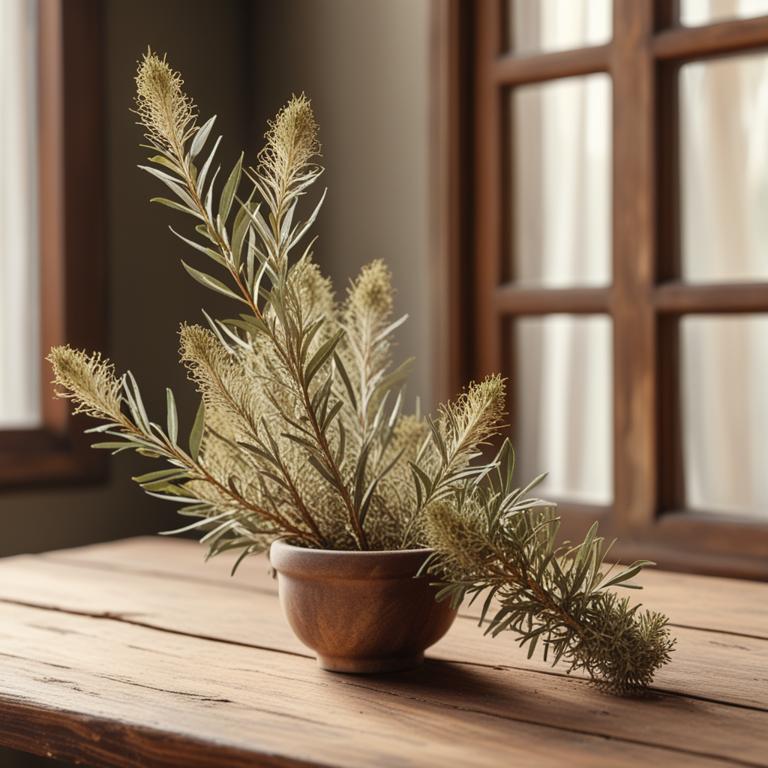
Sunburn Treatment Options: Medicinal Herbs, Herbal Preparations, and Natural Remedies
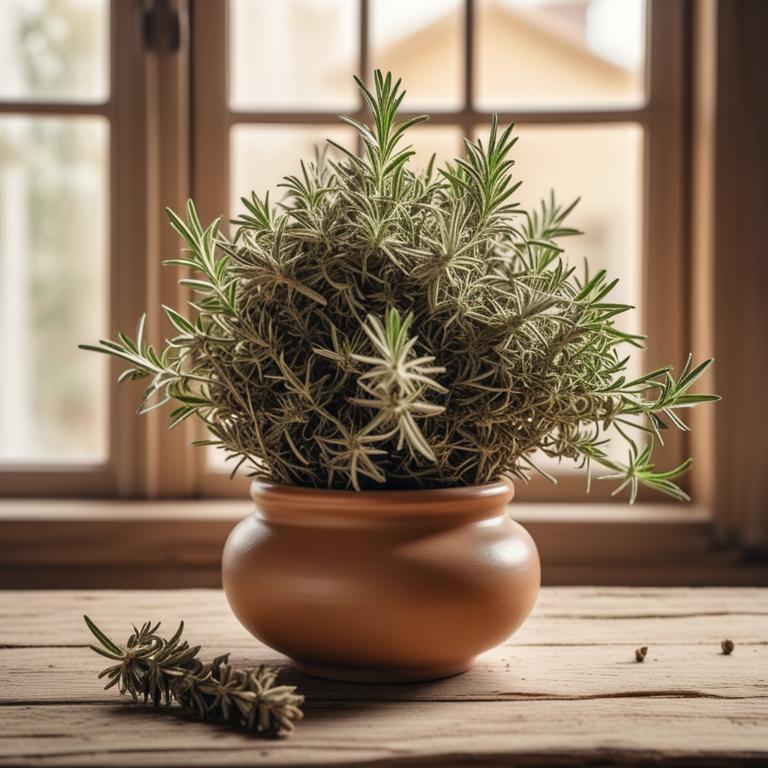
Understanding and Treating Oily Skin with Medicinal Herbs and Preparations
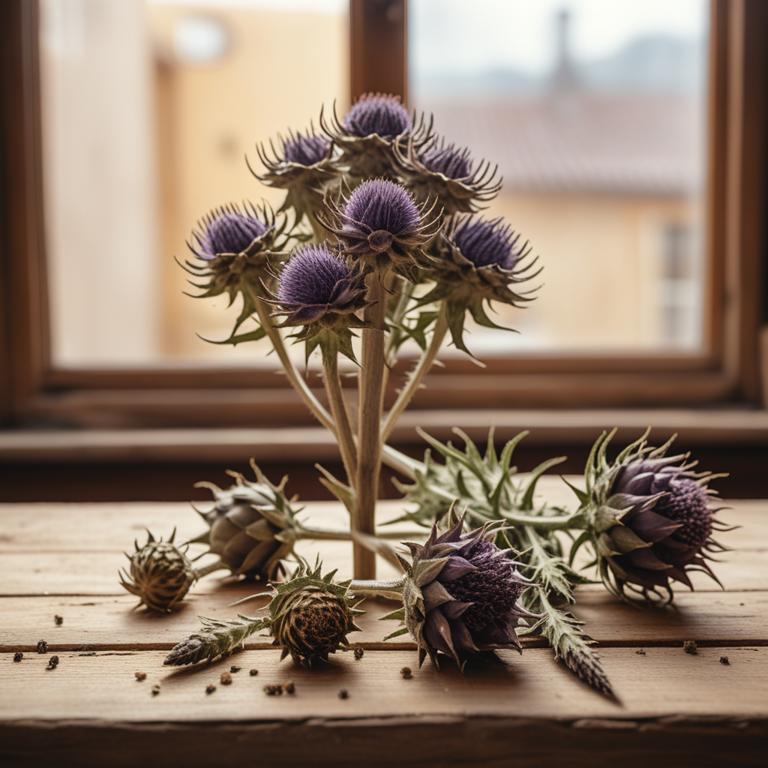
Eye Bags: Causes, Treatment Options, and Medicinal Herbal Remedies
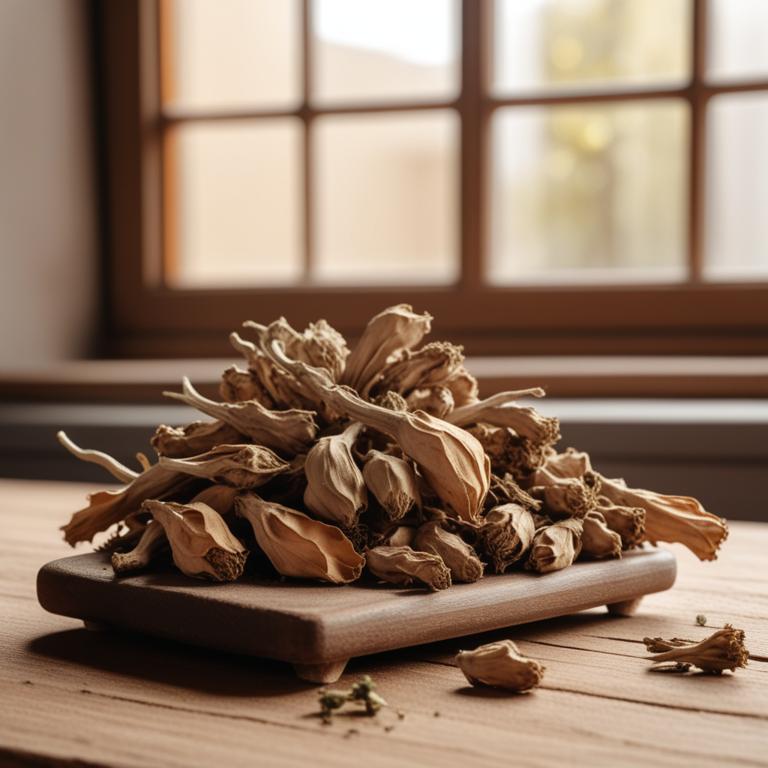
Understanding Pimples: Causes, Symptoms, and Natural Remedies with Medicinal Herbs and Preparations
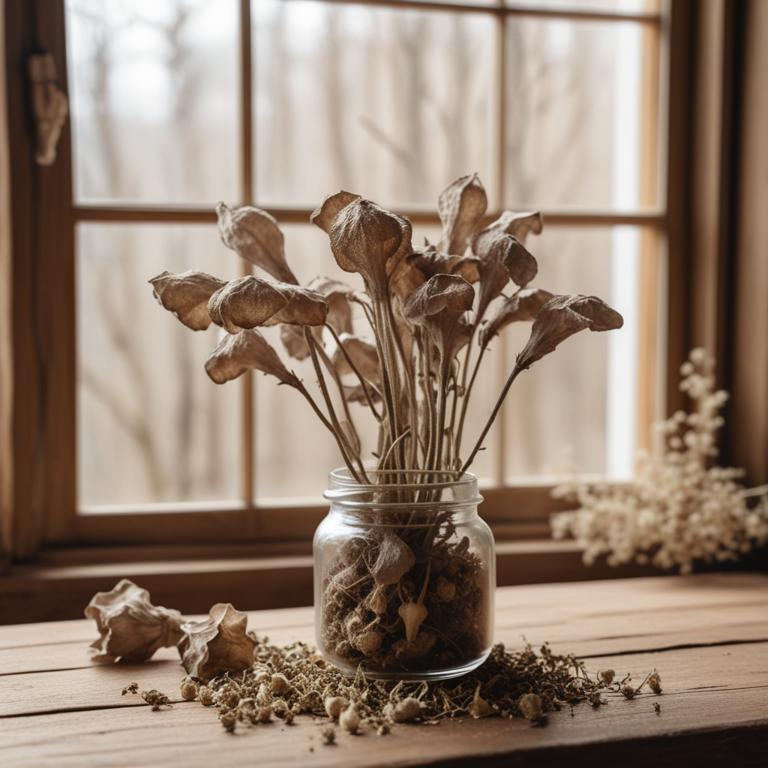
Itchy Eyes: Exploring Medicinal Herbs and Natural Treatments
